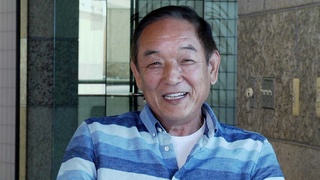Interviews
Reason to come back to Canada in 1954
Well, it's much easier living here. Far better. Japan, although they lost the war, was pretty well still a closed society. The company structure was more feudalistic, the construction company was really feudalistic. If you weren't a relative of the founder or anything, why, you'd never get to the top. So it was much easier to make a go of it in Canada, so I came back. And I think I made the right decision. Sure, after I left, Japan embarked on an industrial come back, and you know how prosperous she is now. Now it makes me wonder whether thing, but no, it's hard for me to make the thing because I, I went to Japan when I was sixteen, and I still had the customs, Canadian customs. And it's hard to get used to Canadian society and life per se. So my judgment was this is probably better if I went back to Canada and started over again.
Date: October 29, 2005
Location: Toronto, Canada
Interviewer: Norm Ibuki
Contributed by: Sedai, the Japanese Canadian Legacy Project, Japanese Canadian Cultural Center
Explore More Videos

Support from Nikkei (Japanese)
Shin Issei – owner of izakaya (Japanese-style tavern) and kappo (small Japanese diner) restaurant, Honda-Ya

Immigration ship Brazil-maru (Japanese)
Shin Issei – owner of izakaya (Japanese-style tavern) and kappo (small Japanese diner) restaurant, Honda-Ya

Great grandfather Asato was a sumo wrestler
Okinawan American whose parents are from Peru.

Grandfather loved to tell her stories of her great-grandfather Arakaki
Okinawan American whose parents are from Peru.

Parents leaving Peru to move to California
Okinawan American whose parents are from Peru.

Grandfather migrating to Colombia
(b.1974) Japanese Colombian who currently resides in the United States

What made your parents decide to move to Brazil?
Professor of Law, University of Sao Paulo, Lawyer, Translator (b. 1948)

Moving to and living in Japan
Japanese American Creative designer living in Japan



Family interrelations between mother and father
(1926 - 2012) Scholar and professor of anthropology. Leader in the establishment of ethnic studies as an academic discipline

Going back to Hawaii
An expert researcher and scholar on Japanese immigrant clothing.

Picture brides and karifufu
An expert researcher and scholar on Japanese immigrant clothing.

Kibei schoolchildren in Hiroshima, Japan
(b.1913) Kibei from California who served in the MIS with Merrill’s Marauders during WWII.

Mother's immigration to U.S. as a treaty merchant
(b. 1927) Japanese American Nisei. Family voluntarily returned to Japan during WWII.
